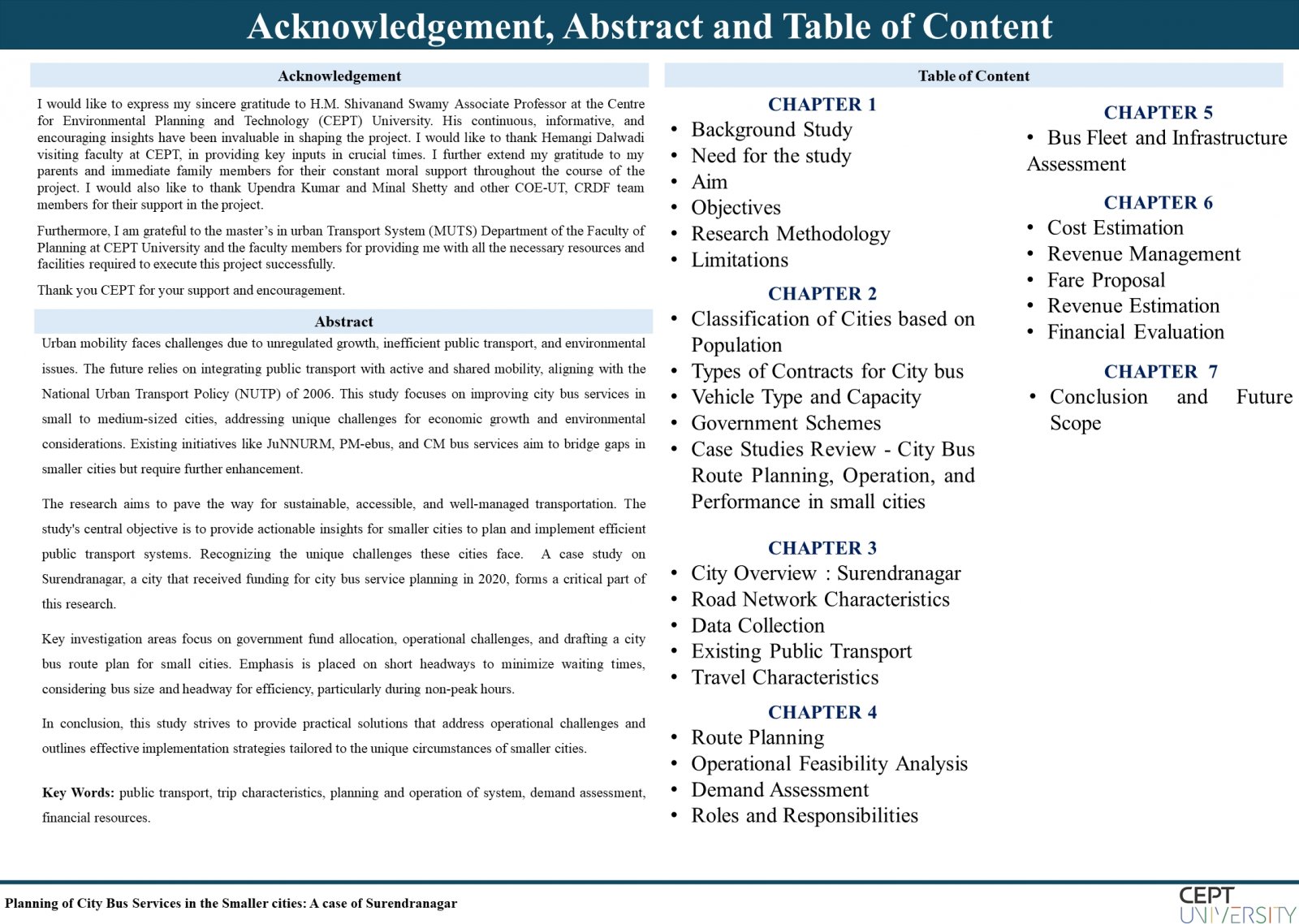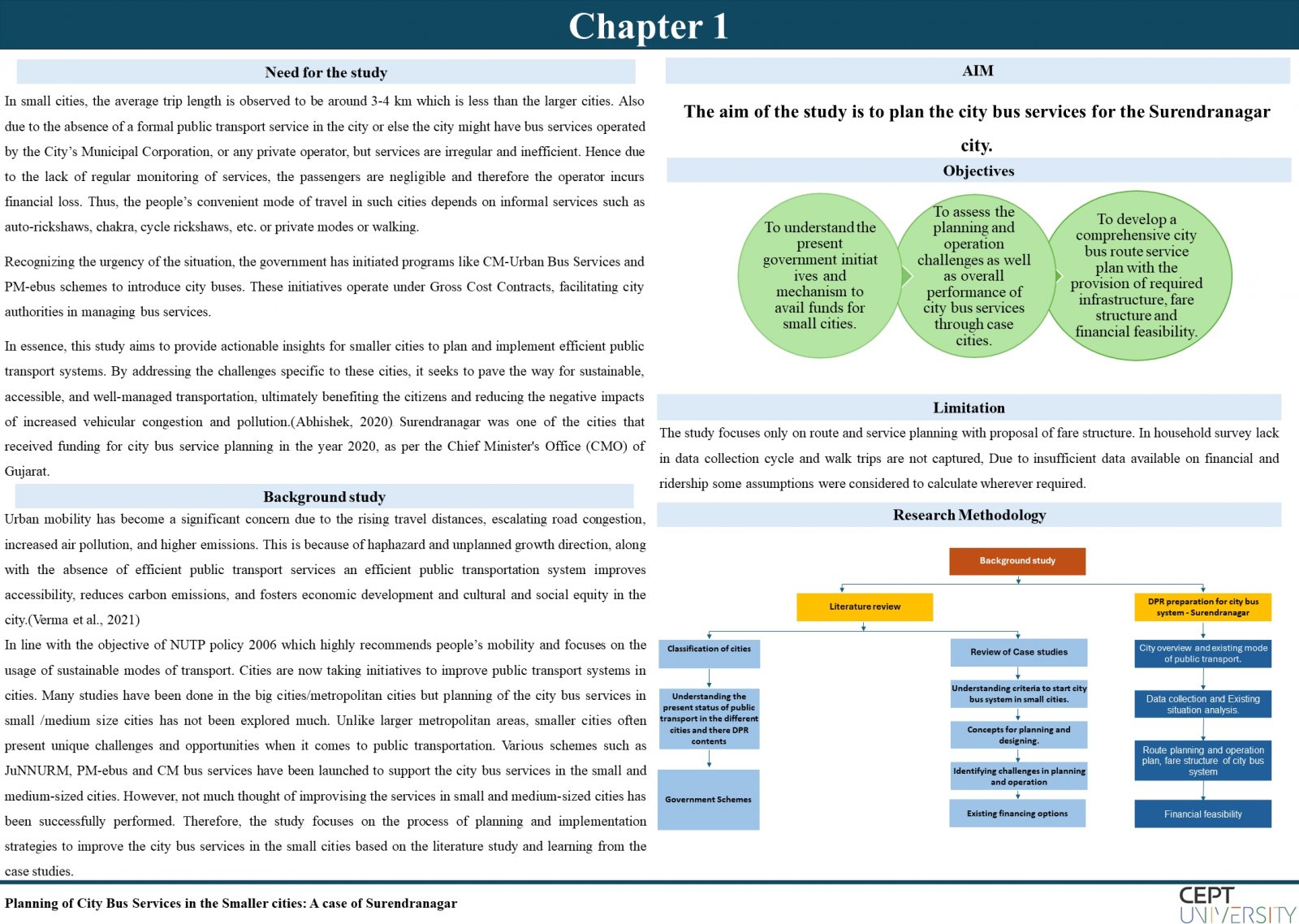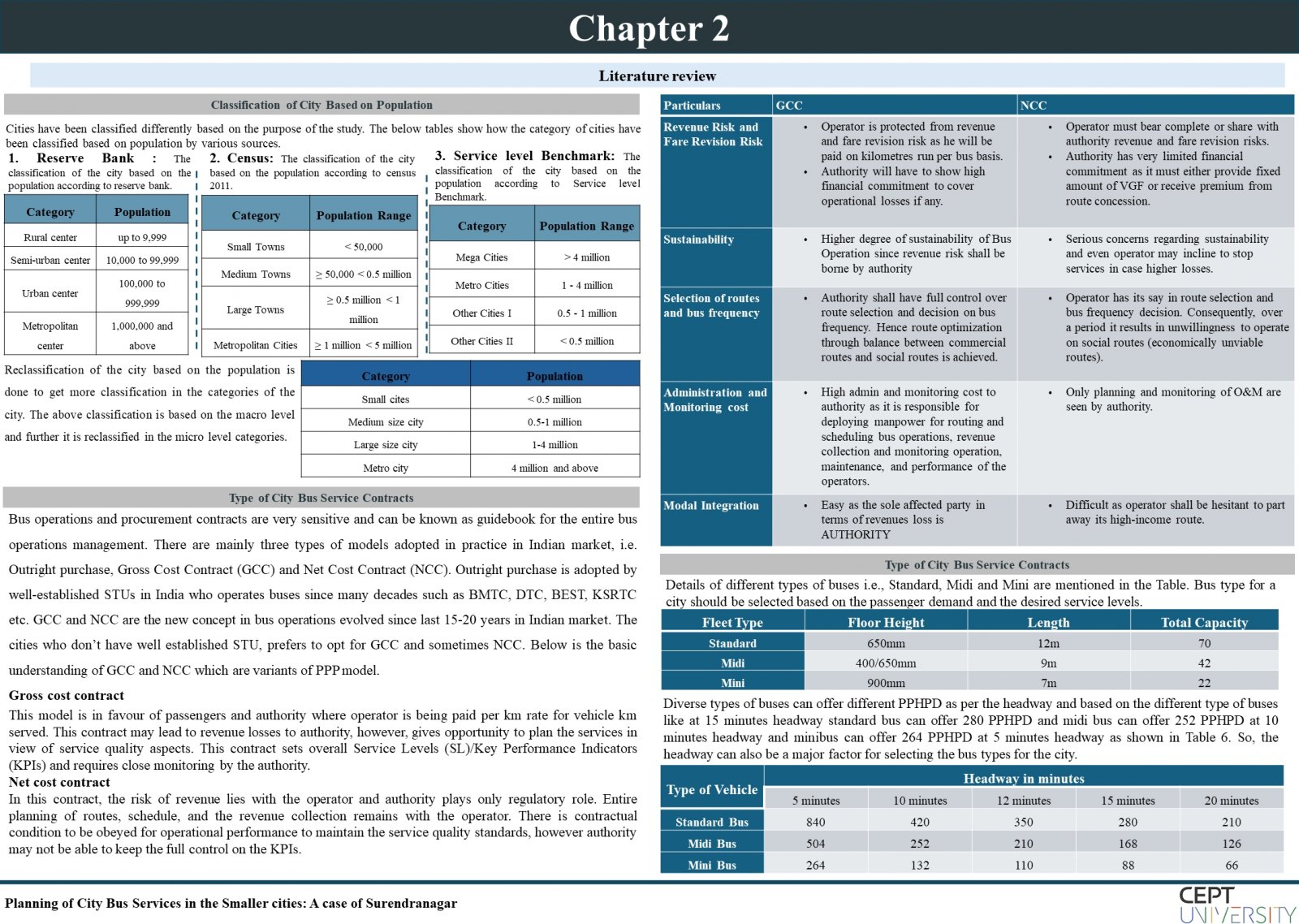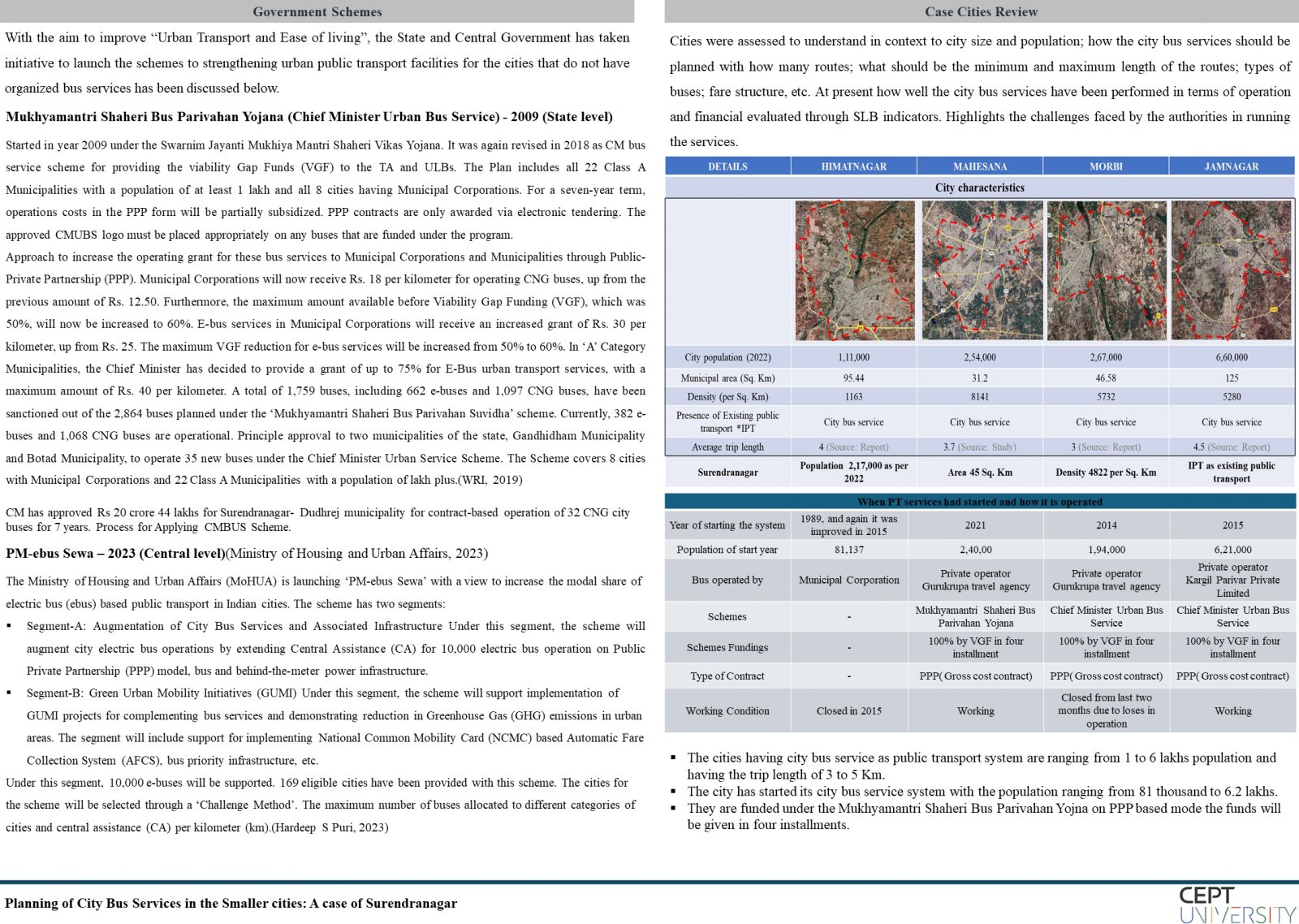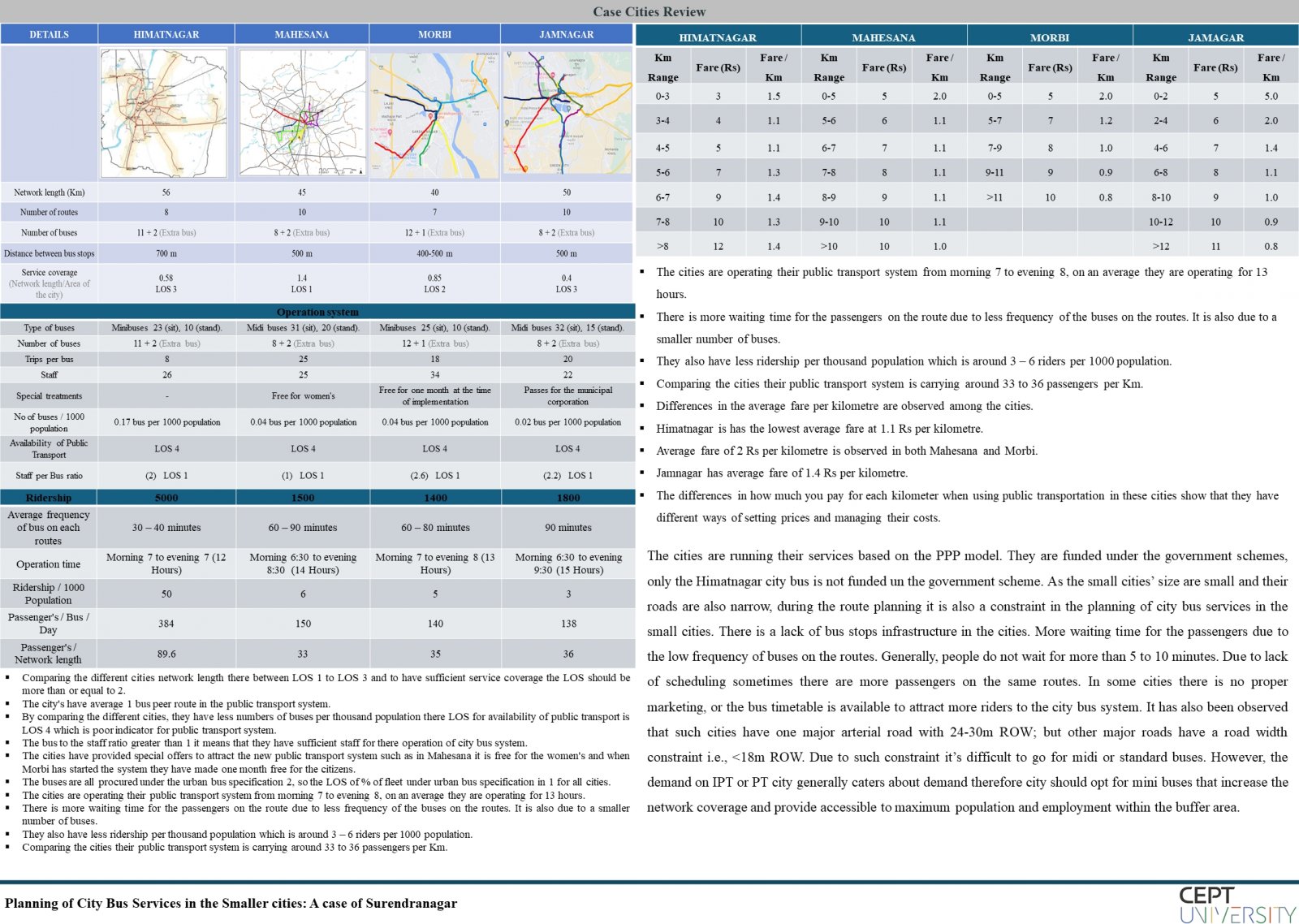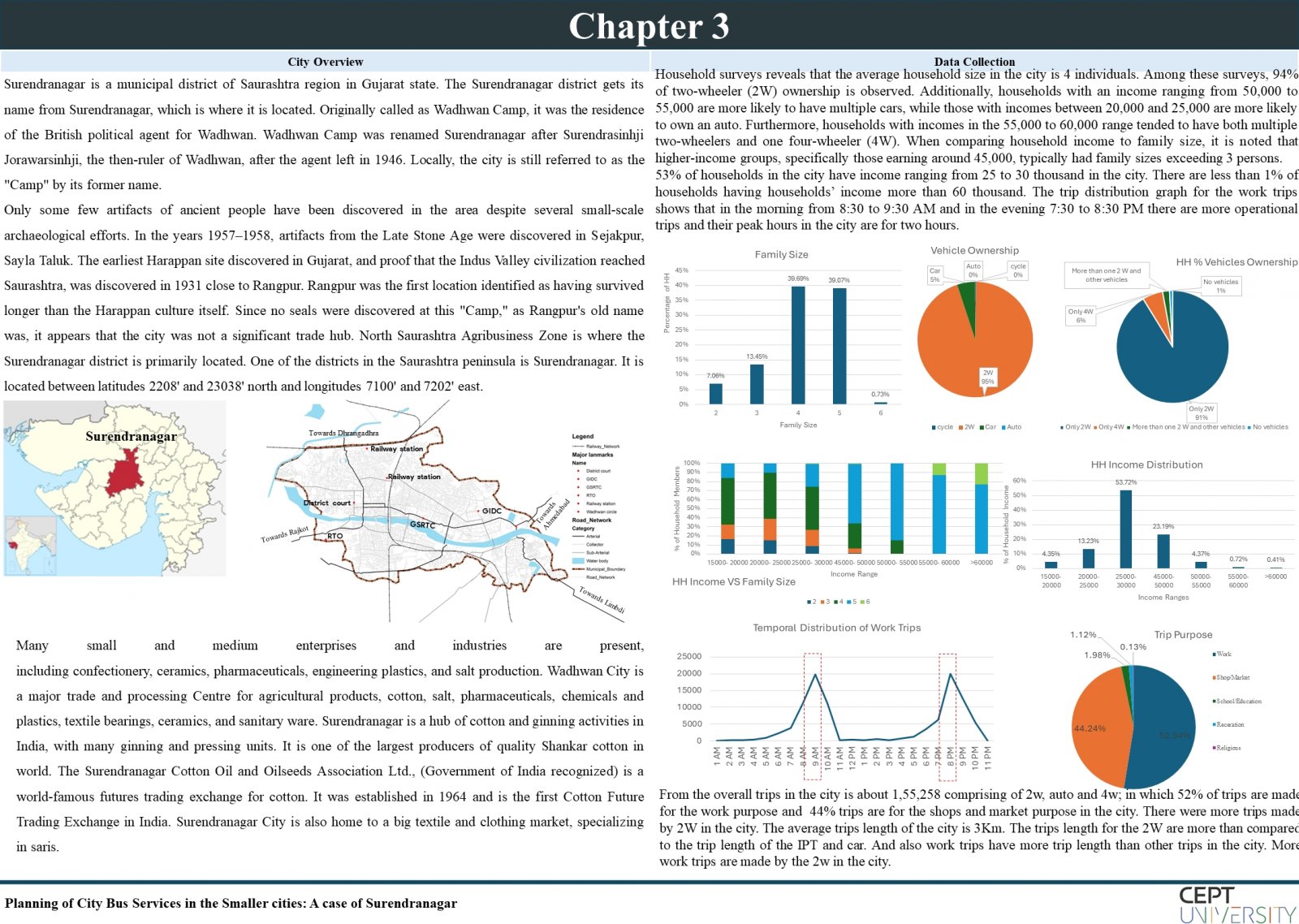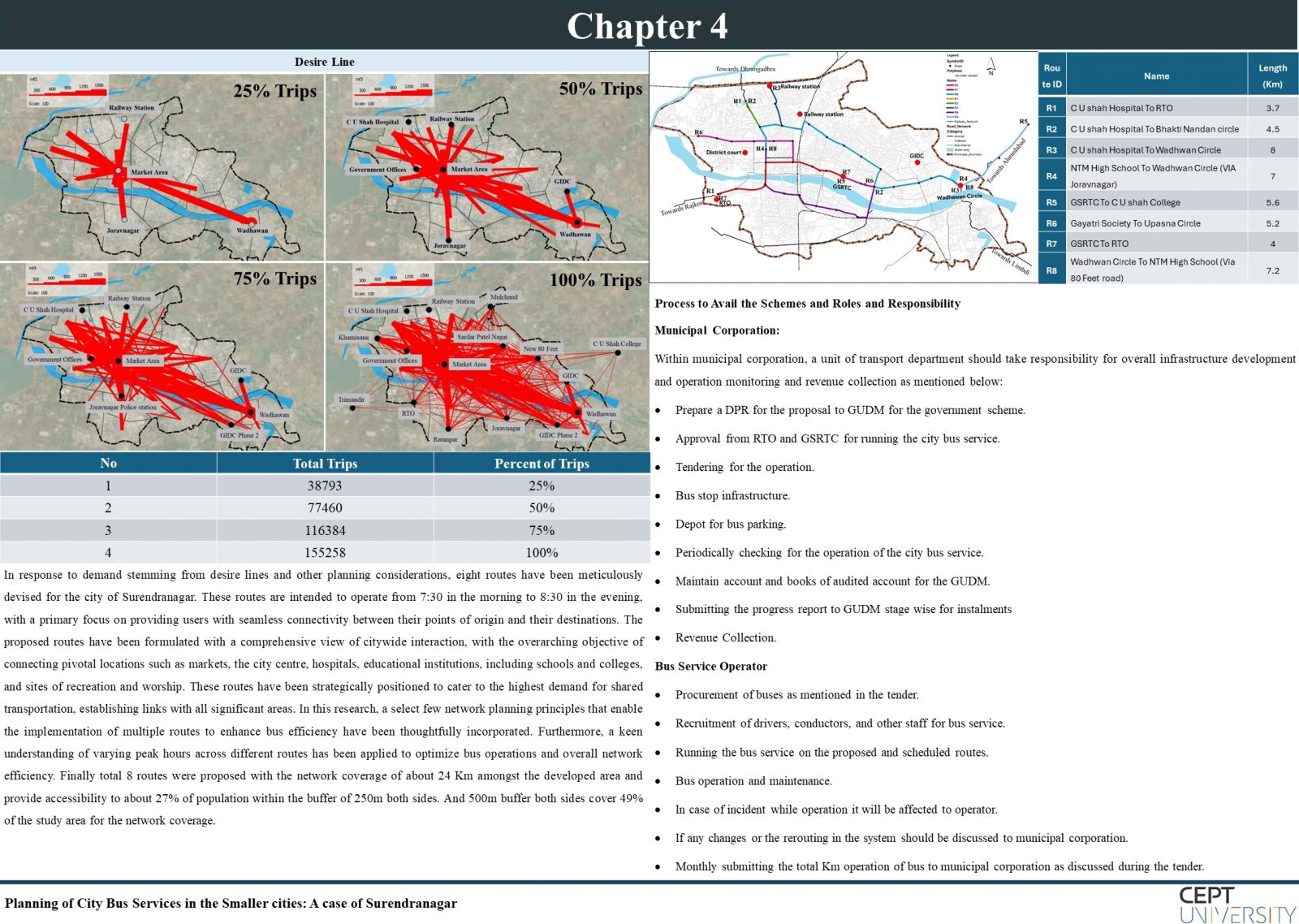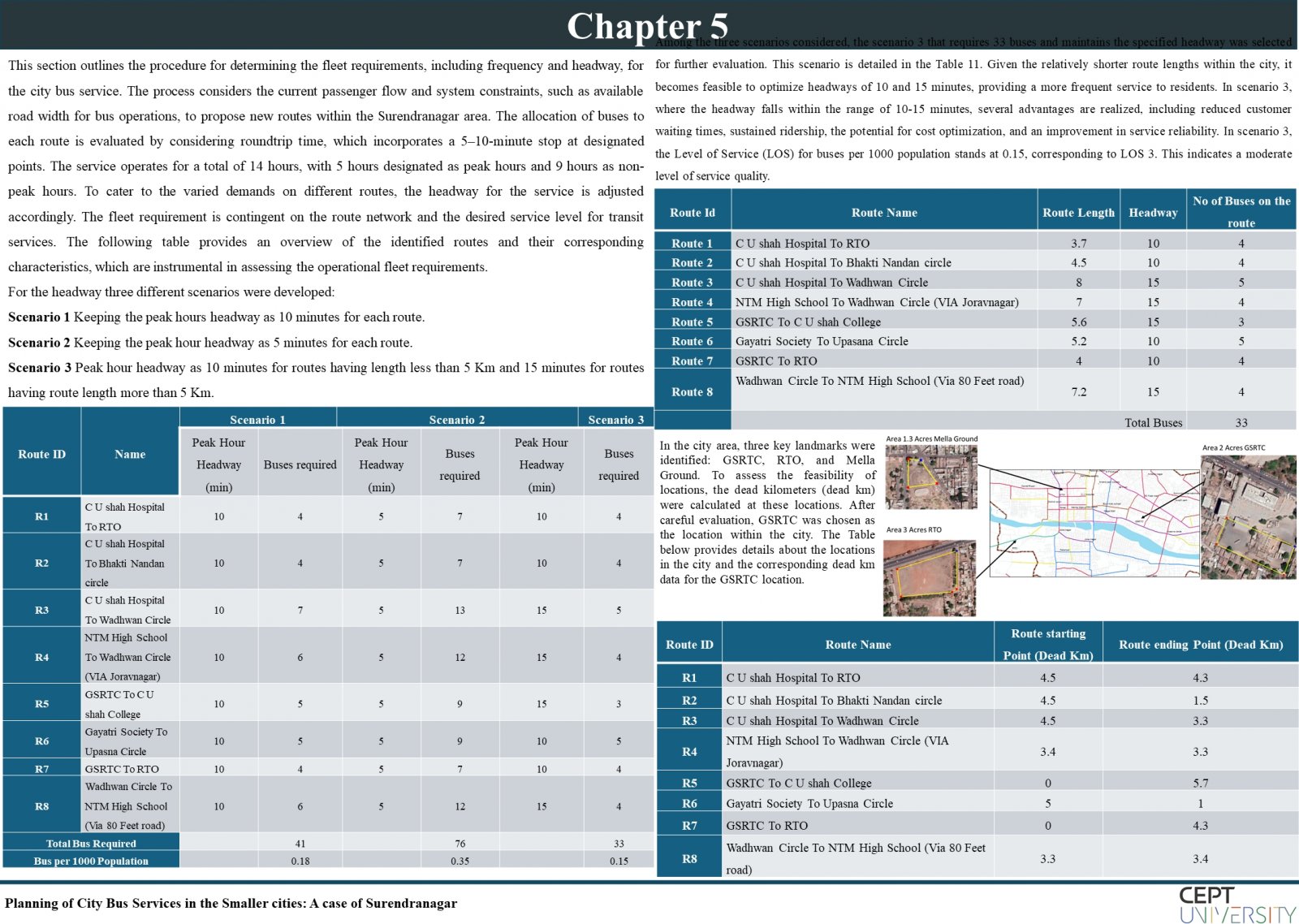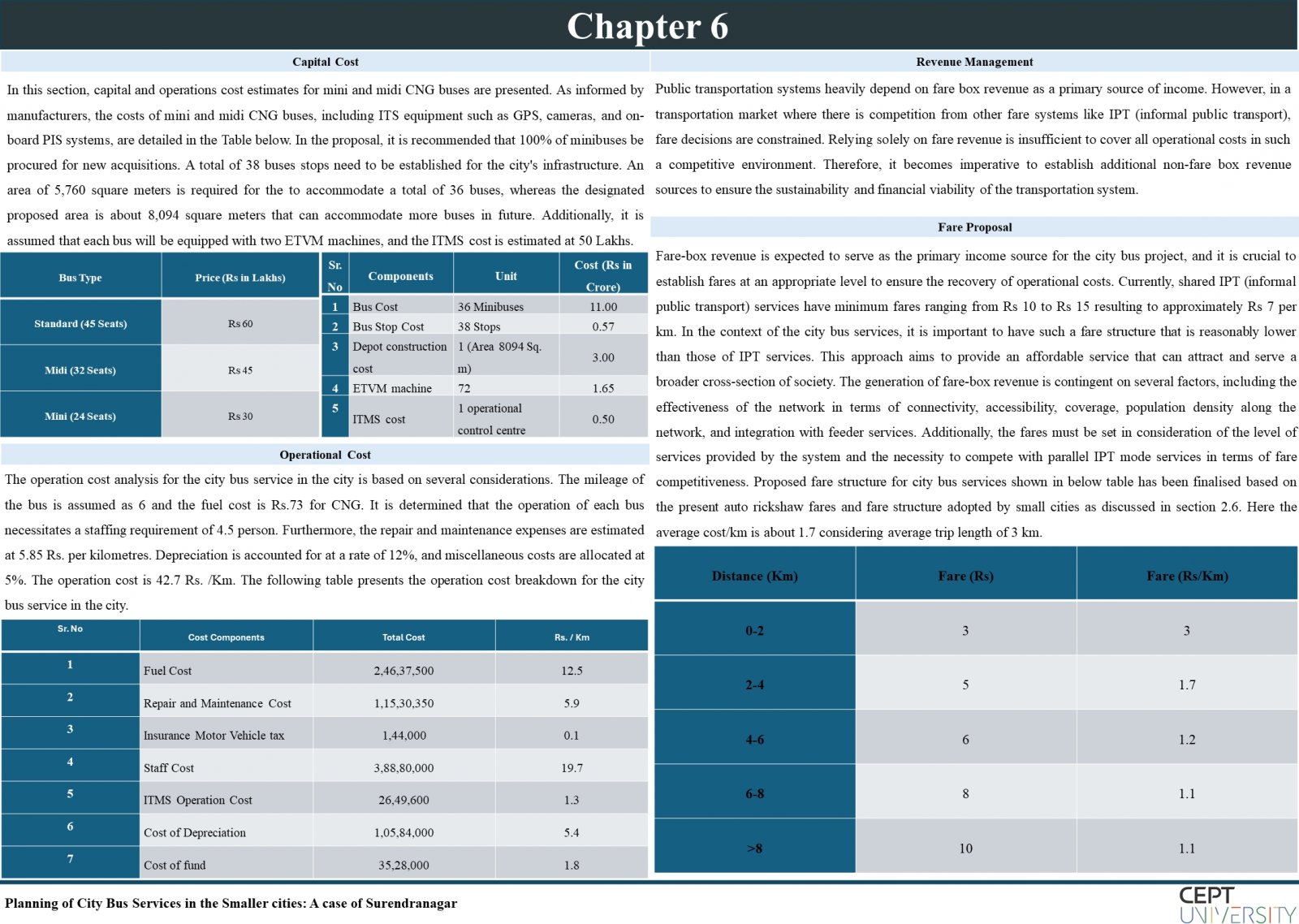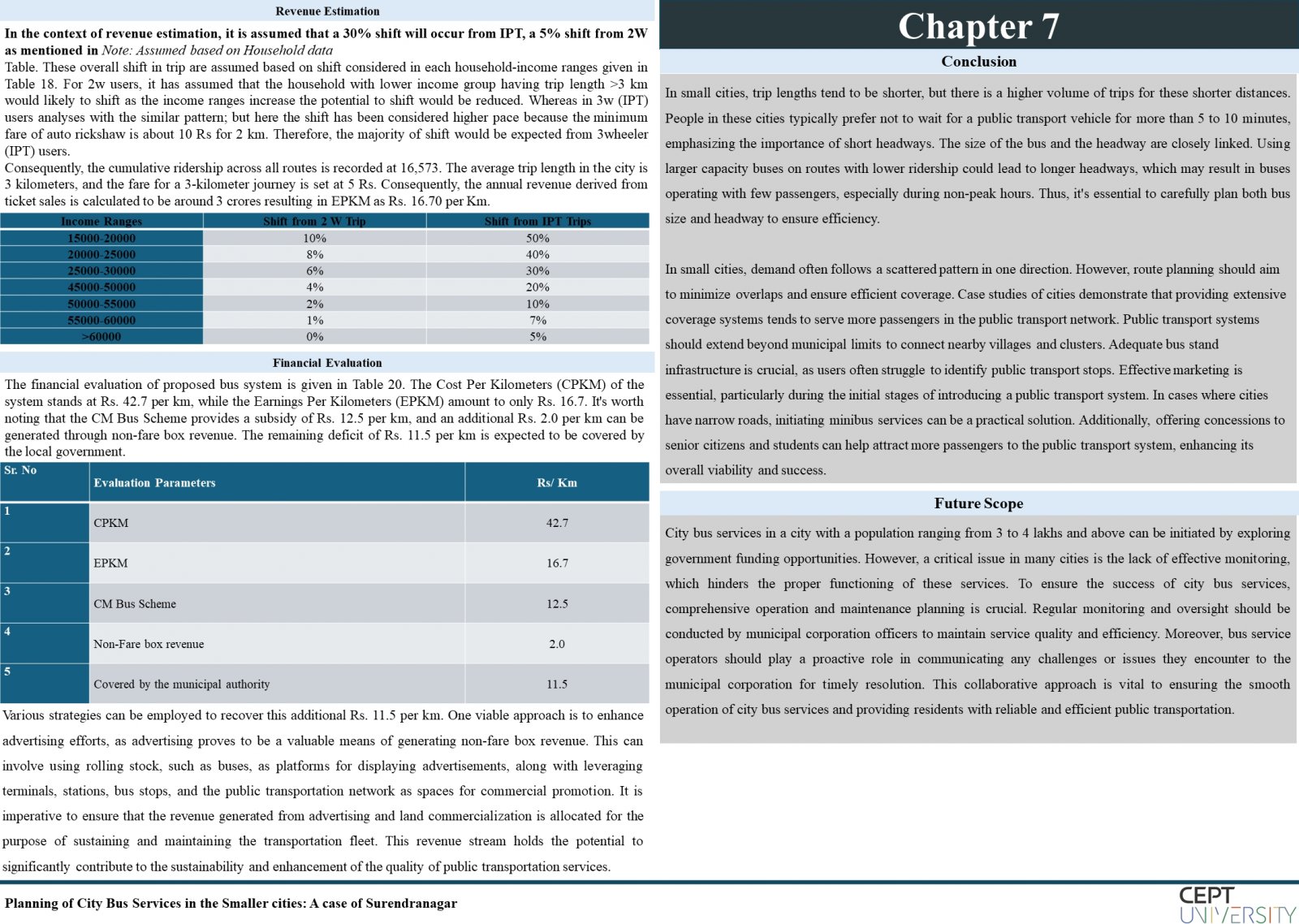Your browser is out-of-date!
For a richer surfing experience on our website, please update your browser. Update my browser now!
For a richer surfing experience on our website, please update your browser. Update my browser now!
Urban mobility faces challenges due to unregulated growth, inefficient public transport, and environmental issues. The future relies on integrating public transport with active and shared mobility, aligning with the National Urban Transport Policy (NUTP) of 2006. This study focuses on improving city bus services in small to medium-sized cities, addressing unique challenges for economic growth and environmental considerations. Existing initiatives like JuNNURM, PM-ebus, and CM bus services aim to bridge gaps in smaller cities but require further enhancement. The research aims to pave the way for sustainable, accessible, and well-managed transportation. The study's central objective is to provide actionable insights for smaller cities to plan and implement efficient public transport systems. Recognizing the unique challenges these cities face. A case study on Surendranagar, a city that received funding for city bus service planning in 2020, forms a critical part of this research. Key investigation areas focus on government fund allocation, operational challenges, and drafting a city bus route plan for small cities. Emphasis is placed on short headways to minimize waiting times, considering bus size and headway for efficiency, particularly during non-peak hours. In conclusion, this study strives to provide practical solutions that address operational challenges and outlines effective implementation strategies tailored to the unique circumstances of smaller cities.
